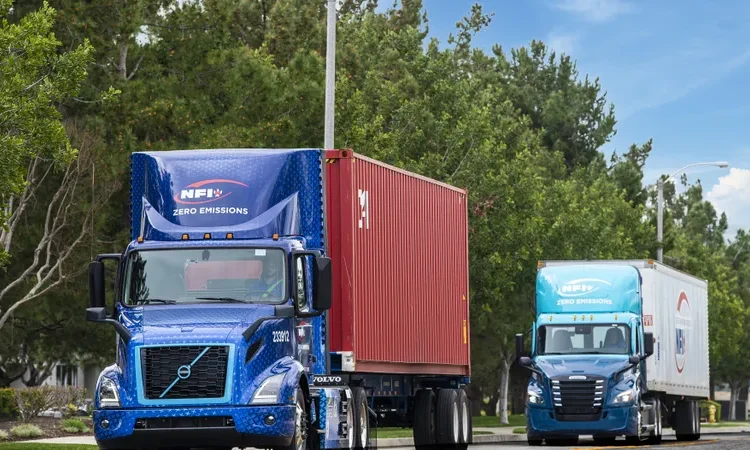The British Columbia Trucking Association’s CEO says a shutdown of Canadian railroad networks will lead to a dearth in trucking activity.
The Canadian trucking industry cannot meet the domestic needs to keep critical supplies and daily goods flowing if a work stoppage happens at the country’s major railroads, according to the leader of the British Columbia Trucking Association.
“There is no possibility trucking can fill the gap of any labour disruption on railways,” Dave Earl, president and CEO of the BCTA, said in an email to Trucking Dive.
A labor deal impasse between the Teamsters Canada Rail Conference and carriers Canadian National Railway and Canadian Pacific Kansas City has led to a potential work stoppage that could start by Thursday. Both railroads also announced freight embargoes last week ahead of a possible shut down of their respective networks.
Earl recognizes the dire situation and impact to supply chains should Canada’s railroads stop running. More than 900,000 metric tons of goods move daily on Canada’s railways, according to the Railway Association of Canada.
Despite the soft freight market plaguing the U.S. trucking industry, Canada’s trucking industry is “already running near capacity,” Earl said, adding that “road transportation cannot come close to replacing the movement of goods that will be displaced from railways in the event of a dispute.”
BCTA’s motor carrier members operate between 13,000 and 14,000 trucks and employ over 26,000 people. Trucking depends on the railroads to haul bulk items including raw materials such as coal, grain and other minerals, Earl said.
“Our members move goods in smaller quantities to places railways don’t go,” Earl said.
U.S. trucking companies that operate in Canada are aware of a possible logistics crisis. A spokesperson for ArcBest said the carrier doesn’t expect Canadian rail disruption to impact its operation since most of its freight in Canada is transported over the road but stands prepared to handle any issues if problems arise.
While trucks will keep some domestic freight moving around Canada should the railroads shut down, it’s the transport of larger items that concern Earl.
He pointed to shipments of new vehicles arriving through the Annacis Auto Terminal at the Port of Vancouver, Canada’s largest, which handles 480,000 vehicles annually. Earl said if cars cannot move from the Annacis terminal on rail, eastern-based vehicle transport carriers will have nothing to deliver to dealerships.
The same scenario arises for shipping containers arriving in Vancouver, Earl said. If cargo typically transported to eastern and southern destinations in Canada isn’t moved on rail, distribution centers won’t be restocked, which means trucking companies have nothing to transport to stores for consumers to purchase.
“Far from an uptick in business, this will create significant disruption,” Earl said. Trucking may manage some of the displaced cargo, but he doesn’t see rail disruption creating a “boon for our sector.”
“Should a disruption occur, this will impact every element of the supply chain in Canada,” Earl said.


